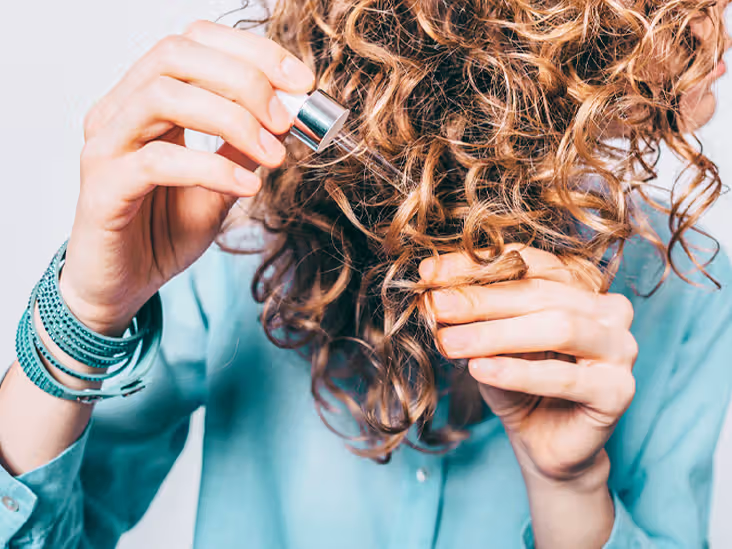Lemon juice is known to be a natural cure for whitening hair and a Natural Solution for Glossy Locks. Many prefer using lemon juice instead of chemical-based hair colorings. Although lemon juice’s citric acid can lighten hair with a bleaching effect, its use has some significant hazards. Extended contact with lemon juice can cause dryness, hair damage, and even scalp inflammation. Furthermore, the intrinsic acidity of lemon juice can damage its health, which makes hair more sensitive to external stresses. When choosing lemon juice as a hair-lightening agent, one should balance these hazards with the possible advantages.
Properties of Lemon Juice for Excellent Hair Growth
A natural powerhouse, lemon juice will help your hair in various ways. Packed with vitamin C and antioxidants, it nourishes hair follicles. It increases blood flow to the scalp, encouraging hair growth. Lemon juice’s citric acid also serves as a natural cleanser, eliminating extra oils and product residue and leaving your hair light and fresh. It can balance the pH of your scalp, thereby preventing an oily scalp and lowering dendritic.
Furthermore, lemon juice gives a faint sun-kissed tint. It is known to improve hair shine and lighten hair over time naturally. To prevent any dryness or aggravation, dilute lemon juice with water. Lemon juice’s revitalizing qualities make it a great addition to your hair care regimen since it helps to promote better, shinier, more manageable hair.
How Does Lemon Juice Lighten Hair?
An organic acid, citric acid in lemon juice, can open the hair cuticle—the outer layer of the hair shaft—when sprayed on the hair. This lets the acid pass through the hair shaft and interact with the natural pigments—especially the melanin in charge of hair color. Sunlight causes the ultraviolet (UV) rays in lemon juice to activate the citric acid, therefore facilitating the slow degradation of the melanin pigment.
A faint lighting effect follows from this. Usually, people straight-forwardly apply lemon juice to their hair and then spend time in the sun to let the lightening process run over time. Although this approach can give hair a sun-kissed appearance, the lightning impact is typically more subdued and less noticeable than commercial hair colors.
The Amazing Benefits of Lemon Juice for Hair
Besides being a great beverage, lemon juice is vital to your hair care regimen. Rich in vital vitamins and antioxidants, lemon juice has several advantages that might change the state of your hair. Let’s investigate the main benefits of lemon juice application to your hair:
- Encourages Fresh Hair Growth
Vitamin C abounds in lemon juice and is vital for synthesizing collagen, a protein that promotes hair development. Massaging lemon juice into your scalp helps boost blood circulation, feeding hair follicles and encouraging faster and more robust hair development.
- Balances the Scalp’s Ph. Level
Lemon juice’s acidity helps restore your scalp’s natural pH balance, so avoiding dryness and dandruff. Frequent application can assist in preserving a healthy scalp environment, lowering irritation, and providing the best circumstances for hair to flourish.
- Fight Against Dandruff
Excellent natural treatment for dandruff, lemon juice has antibacterial and antifungal qualities. The acidity helps eliminate extra oil, avoid flakiness, and regulate the growth of fungus-producing dandruff.
- Add Shine and Gloss to Hair
By helping your hair shed product build-up, lemon juice will make it lighter and shinier. Its natural clarifying qualities guarantee your hair looks bright and fresh, with a healthy shine from the roots.
- Helps to Control Oil Content
Lemon juice might be a revolution for people with oily hair. Lemon’s citric acid helps the scalp’s extra oil be absorbed. This will leave your hair feeling fresh and non-greasy without drying it out.
- Reduces Split Ends and Breakage
Rich in antioxidants and vital elements, lemon juice helps the hair shaft be stronger, thereby reducing split ends and breakage. It gives your hair from root to tip more resilience and reduces susceptibility to damage.
Effective Remedies to Use Lemon Juice for Hair at Home
Lemon juice can be a flexible addition to your hair care regimen, whether your goals are to promote scalp health, boost shine, or treat common hair conditions, including dandruff. Here are some primary yet powerful home hair care uses for lemon juice.
- Lemon Juice with Olive Oil or Coconut Oil
The antifungal and antibacterial qualities of lemon juice are well-known, and they help fight dandruff and enhance scalp condition. Combine lemon juice with olive or coconut oil to create a calming scalp treatment.
Directly apply the mixture to your scalp and gently massage for a few minutes. Let it sit for 15 to 20 minutes, then rinse it with lukewarm water. Dandruff-related dryness, flaking, and irritation can all be lessened with this treatment.
- Lemon Juice with Honey Mask
A lemon juice and honey treatment can help dull, dry hair regain its natural gloss. While lemon juice cleanses and brightens the hair, honey is a naturally occurring humectant that helps seal in moisture. Apply the two tablespoons of honey mixed with half a lemon to moist hair. Leave it on for twenty minutes; then, gently shampoo it. Your hair will come from this smooth, glossy, and nourished treatment.
- Lemon Juice with Water and Shampoo
Lemon juice is an excellent natural cure for persons with oily hair to control sebum generation. This juice can help to lessen greasiness and regulate extra oil. After shampooing, toss the juice of one lemon with a cup of water. This will make an essential oil-controlling treatment and massage it into your scalp. Let it rest for several minutes before rinsing. This helps revitalize the scalp, leaving your hair clean without losing vital moisture.
- Lemon Juice, Water and Spray It All Over
Spritz lemon juice mixed with water in a spray bottle into your hair before stepping outdoors into the sun. Leave it on for several hours; the UV rays and lemon juice will help lighten your hair. Treat again over time to get faint, sun-kissed highlights.
- Lemon Juice and Coconut Oil for Hair Growth
Lemon juice with coconut oil can stimulate the scalp and encourage better hair development. Massage gently into your scalp with equal parts lemon juice and coconut oil. While the lemon juice helps keep the scalp clean, the massage increases blood circulation; coconut oil nourishes the hair follicles. Leave it on for at least half an hour before wiping it away. Longer, stronger hair might result from regular use.
Mistakes to Avoid When Using Lemon Juice on Hair
While using lemon juice for hair care can have advantages, there are several typical mistakes to avoid so that it won’t damage your hair:
- Lemon juice is acidic and could dry out or damage your hair if applied too often. Use it just once a week or as part of a treatment. Just avoid everyday applications.
- Applying pure lemon juice straight on your hair might be too abrasive and cause dryness or irritation of the scalp. Always dilute it with water or combine it with other moisturizing agents such as coconut, olive, or honey.
- Using it on your hair for too long should not be done. Your hair could get dry and brittle from it. Limit application duration to 10 to 15 minutes, then rinse thoroughly.
- Lemon juice might make your hair more sensitive to it, resulting in discoloration or greater dryness. Avoid direct sunlight right away following lemon juice application.
- Always follow up with a good conditioner or hair mask to restore moisture and stop dryness after applying lemon juice.
- Lemon juice can aggravate skin issues including psoriasis or eczema should you have a sensitive scalp or scalp diseases. Test in a limited area initially; thereafter, avoid it completely.
Conclusion
Although lemon juice offers a natural substitute for lightening hair, one cannot overlook its possible hazards. Serious issues arising from incorrect use are hair damage, dryness, and scalp discomfort. To prevent long-term damage, one must consider other safer, more efficient hair-lightening alternatives. Always prioritize hair health; before using home cures, see a professional.

